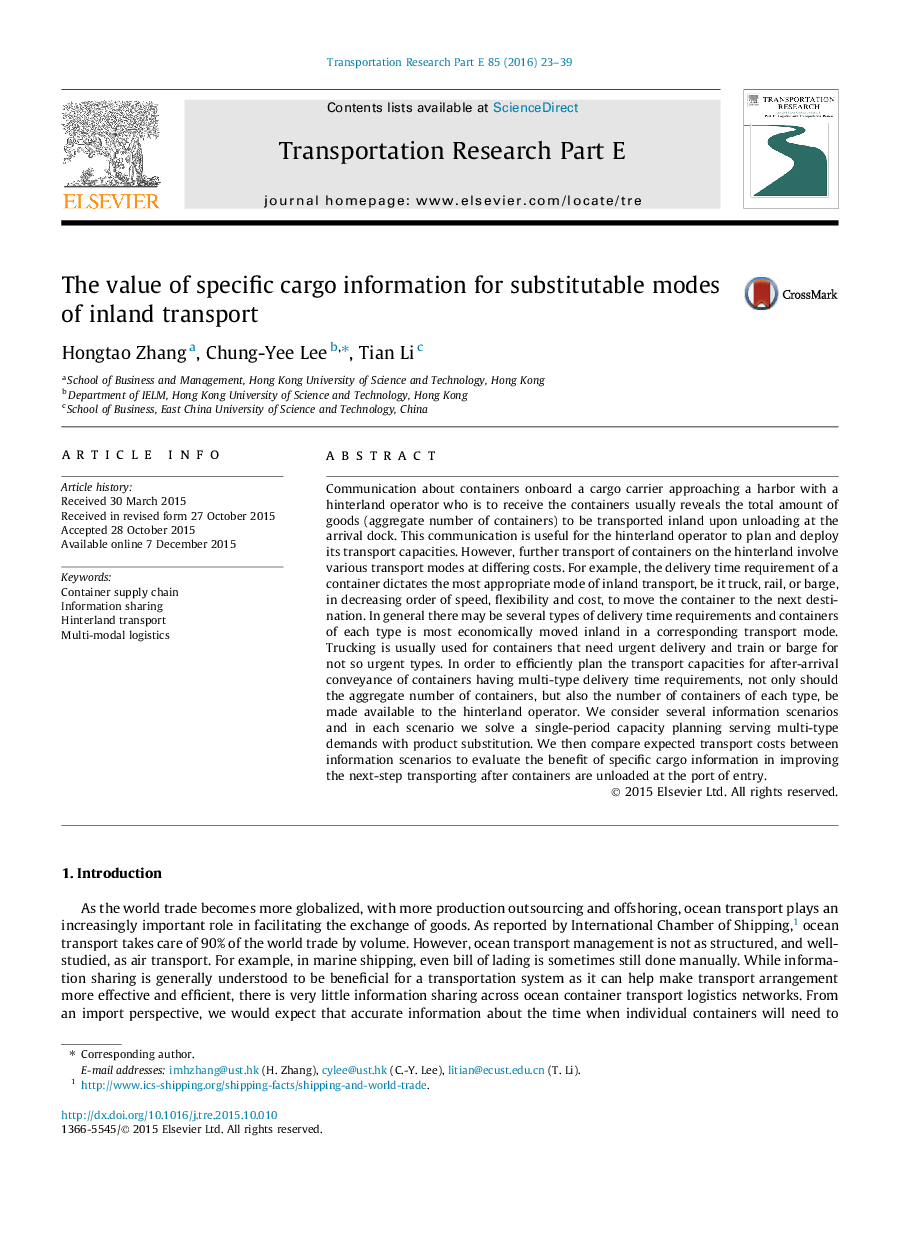| Article ID | Journal | Published Year | Pages | File Type |
|---|---|---|---|---|
| 1023026 | Transportation Research Part E: Logistics and Transportation Review | 2016 | 17 Pages |
•We assess the value of sharing specific cargo information for inland transport.•We model downward substitution of transport modes.•We consider partial and full information sharing.
Communication about containers onboard a cargo carrier approaching a harbor with a hinterland operator who is to receive the containers usually reveals the total amount of goods (aggregate number of containers) to be transported inland upon unloading at the arrival dock. This communication is useful for the hinterland operator to plan and deploy its transport capacities. However, further transport of containers on the hinterland involve various transport modes at differing costs. For example, the delivery time requirement of a container dictates the most appropriate mode of inland transport, be it truck, rail, or barge, in decreasing order of speed, flexibility and cost, to move the container to the next destination. In general there may be several types of delivery time requirements and containers of each type is most economically moved inland in a corresponding transport mode. Trucking is usually used for containers that need urgent delivery and train or barge for not so urgent types. In order to efficiently plan the transport capacities for after-arrival conveyance of containers having multi-type delivery time requirements, not only should the aggregate number of containers, but also the number of containers of each type, be made available to the hinterland operator. We consider several information scenarios and in each scenario we solve a single-period capacity planning serving multi-type demands with product substitution. We then compare expected transport costs between information scenarios to evaluate the benefit of specific cargo information in improving the next-step transporting after containers are unloaded at the port of entry.
